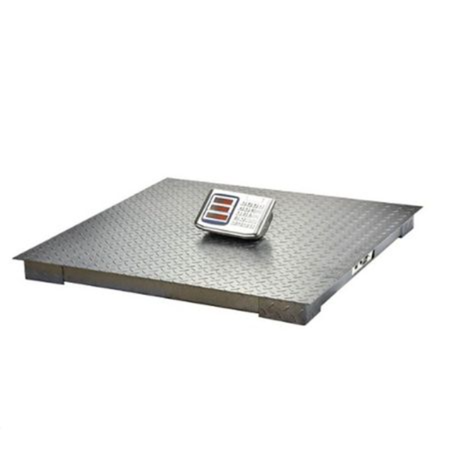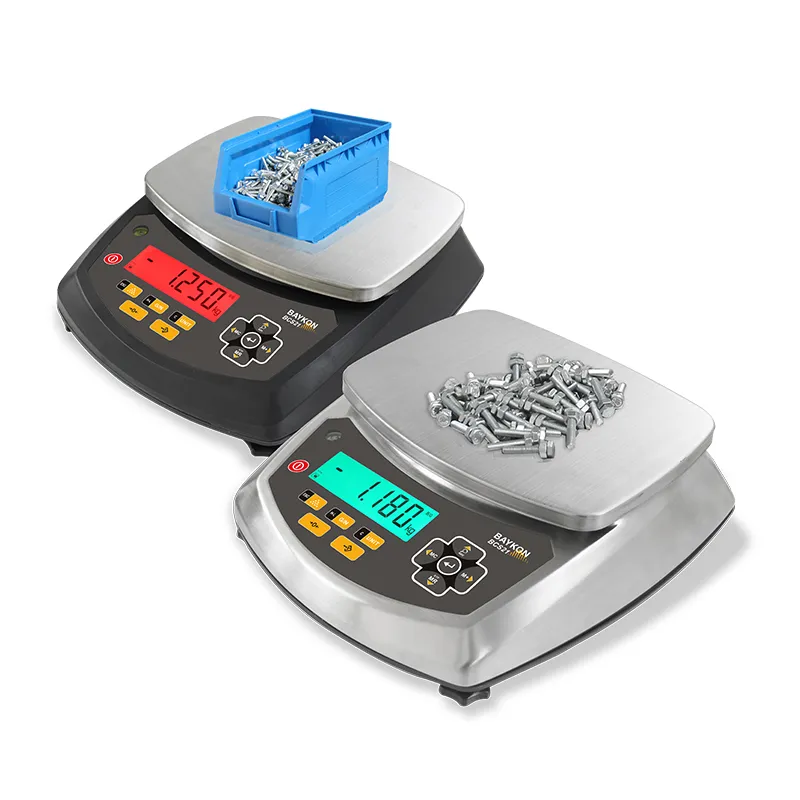Understanding the Different Types of Industrial Scales for Your Business
Understanding the Different Types of Industrial Scales for Your Business
Blog Article
Exactly How Industrial Scales Job: A Thorough Summary for New Users
Understanding the technicians behind industrial scales is critical for new individuals that want to make certain precision in their dimensions. These gadgets rely upon tons cells and stress gauge modern technology to convert weight right into a measurable layout, yet the nuances of their procedure expand past simple performance. From the different types available to the essential techniques for appropriate use and maintenance, each aspect plays a substantial duty in accomplishing dependable outcomes. As we check out these components, one must think about just how these components communicate to enhance performance in varied commercial applications.
Fundamentals of Industrial Scales
Industrial ranges are vital tools made use of throughout various fields, consisting of production, logistics, and farming, to make certain precise weight dimensions of hefty tons. The fundamental principle behind commercial ranges involves the conversion of weight into a measurable form that can be presented digitally or analogically. These ranges employ numerous mechanisms, such as tons cells or mechanical bars, to determine the weight of items positioned upon them.

In addition to their measurement abilities, commercial scales are developed to hold up against extreme settings, featuring durable building and construction that withstands dirt, moisture, and heavy influences. Calibration and upkeep are crucial to ensure accuracy, as also minor inconsistencies can lead to considerable financial implications. By comprehending the basics of commercial ranges, individuals can value their importance in various commercial applications.
Sorts Of Industrial Scales
Numerous kinds of industrial scales provide to the varied demands of various sectors, each designed to manage details weighing tasks with accuracy and dependability. Amongst the most typical kinds are flooring ranges, which are optimal for considering large and hefty things. These ranges generally include big platforms and can fit palletized products, making them essential in warehouses and shipping centers.
One more type is bench scales, which are commonly made use of for smaller products in production and retail setups. They supply exact dimensions for products that call for accuracy, such as chemicals or components in assembly lines (Industrial Scales). For mobile operations, mobile ranges provide adaptability and convenience of transportation, ideal for fieldwork or short-lived installations
In applications requiring high-capacity dimensions, such as in mass product handling, crane scales and load cells are employed. These ranges can determine loads put on hold from a crane or other lifting apparatus, guaranteeing security and precision during procedures. Additionally, specialized ranges like checkweighers are utilized in assembly line to preserve high quality control by guaranteeing that items meet weight requirements. Each kind of industrial range plays a vital role in enhancing operational effectiveness and accuracy across various industries.
Exactly How Evaluating Systems Job
Evaluating systems are vital parts that make it possible for precise dimension of mass throughout various industrial ranges. These mechanisms use various principles of physics and engineering to supply accurate weight analyses, necessary for stock monitoring, top quality control, and conformity with governing criteria.
One typical type of evaluating system is the tons cell, which runs on the principle of pressure gauges. When a lots is applied, the tons cell flaws a little, creating an electric signal proportional to the weight. This signal is then exchanged a readable weight measurement by the click reference range's electronics.
One more commonly utilized device is the mechanical balance, which employs a system of weights and levers. Industrial Scales. This technique counts on the concept of stability, where the weight of the object being gauged is stabilized versus known weights, enabling for straight measurement
Furthermore, hydraulic and pneumatically-driven ranges utilize fluid characteristics principles to gauge weight. These systems make use of the pressure put in by a lots to identify weight, providing high precision for massive loads.
Appropriate Use Techniques
When utilizing industrial scales, adhering to correct use techniques is important for guaranteeing precise dimensions and keeping devices integrity. It is crucial to pick the ideal scale for your certain application, as scales differ in capacity and accuracy.
Before considering, ensure that the scale is put on a steady, level surface area without disturbances or vibrations. This will certainly aid to lessen errors brought on by outside factors. In addition, calibrate the range according to the producer's specifications before use, making certain that it is functioning properly.
When positioning items on the scale, distribute the weight uniformly to prevent tipping or damaging the tools. Always enable the scale to maintain before recording the weight, as changes may happen during initial positioning. For bulk materials, make use of containers that are proper for the scale size to stop overloading.
Moreover, stay clear of putting cold or overly hot items directly on the scale, as temperature level variants can influence precision. Finally, keep the weighing platform totally free and clean of particles to avoid contamination and make certain trusted results. blog By following these techniques, customers can make the most of the efficiency and durability of their industrial ranges.
Maintenance and Calibration Tips
Making certain the long life and precision of industrial ranges requires persistent upkeep and regular calibration. A preventive maintenance schedule is crucial; it should consist of regular examinations to determine damage, specifically on lots cells and various other sensitive elements. Regularly cleaning up the range's surface and making certain the surrounding area is without debris will certainly aid preserve its stability and efficiency.
Calibration is just as important and ought to be carried out at routine periods or whenever the range experiences substantial changes in temperature, moisture, or physical variation. Make use of qualified calibration weights that are deducible to national criteria for accuracy. Document each calibration session thoroughly to track efficiency with time and browse around here determine any fads or recurring problems.
Additionally, bear in mind the scale's environment. Stay clear of putting it near resources of vibration, electromagnetic disturbance, or extreme temperatures, as these factors can negatively affect dimensions. Ultimately, train all drivers on proper range use and maintenance protocols to ensure consistent efficiency and accuracy. By sticking to these maintenance and calibration ideas, customers can improve the reliability of their commercial ranges, guaranteeing optimal operation in any kind of setting.
Final Thought

Comprehending the auto mechanics behind industrial scales is essential for new individuals that want to make certain precision in their measurements.Industrial scales are important devices utilized throughout numerous sectors, including production, logistics, and agriculture, to ensure accurate weight measurements of hefty lots. The basic principle behind commercial ranges includes the conversion of weight right into a quantifiable form that can be presented electronically or analogically. By comprehending the fundamentals of industrial scales, users can value their value in different industrial applications.
In conclusion, understanding the procedure and maintenance of commercial ranges is crucial for ensuring precise weight measurements in numerous applications. (Industrial Scales)
Report this page